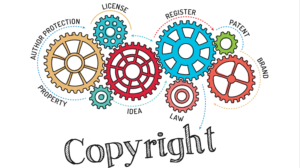Content Creation Ethics You Must Know In 2023

Content creation has become a major part of modern society, permeating various platforms, industries, and mediums.
From social media influencers to professional writers, artists, and filmmakers, creators wield considerable power in shaping opinions, influencing behavior, and disseminating information to global audiences.
However, with this influence comes a responsibility to uphold ethical standards.
The principles guiding content creation ethics are essential in ensuring that creators produce responsible, respectful, and honest content that serves both creators and consumers alike.
Understanding Content Creation Ethics
-
Transparency and Honesty

At the core of content creation ethics lies transparency and honesty.
Creators are entrusted with the task of providing accurate and truthful information to their audiences.
Whether it’s a sponsored post, product review, or informational content, disclosing any conflicts of interest, sponsorships, or biases is paramount.
Authenticity builds trust, and misleading or deceitful practices can erode the audience’s confidence and credibility of the creator.
-
Respect for Diversity and Inclusivity

Content creators have a significant impact on societal norms and perceptions.
Hence, it’s only right to create content that respects and celebrates diversity, inclusivity, and cultural differences.
This involves avoiding stereotypes, discrimination, or any form of content that could propagate hate speech, racism, sexism, or other forms of intolerance.
(Except you’re trying to be the content creator that builds engagement on controversies and biases)
-
Copyright and Intellectual Property Rights

Respecting intellectual property rights is a fundamental ethical consideration in content creation.
Plagiarism, unauthorized use of copyrighted material, or claiming others’ work as one’s own not only violates ethical standards but also legal boundaries.
Proper attribution, obtaining necessary permissions, and adhering to fair use principles are crucial for ethical content creation.
-
Data Privacy and Security

As technology evolves, creators must handle personal data and information responsibly.
Respecting users’ privacy rights, obtaining consent for data collection, and implementing adequate security measures to protect sensitive information are ethical imperatives in the digital era.
Some Ethical Challenges in Content Creation

-
Misleading or Clickbait Content
The quest for engagement and views sometimes leads creators to resort to sensationalism or clickbait tactics.
While these methods might garner attention, they often compromise the integrity of the content and deceive the audience.
Ethical content creation avoids misleading headlines, thumbnails, or content designed solely for click-through rates.
-
Influencer Marketing and Disclosure
The rise of influencer marketing has introduced ethical dilemmas regarding transparency.
Creators endorsing products or services should clearly disclose any financial or material relationships with the brands they promote.
Failing to disclose sponsorships can mislead audiences and blur the line between authentic recommendations and paid endorsements.
-
Cyberbullying and Online Harassment
Content creators, particularly on social media, face challenges related to cyberbullying and online harassment.
Ethical content creation involves fostering a safe and respectful online environment, taking measures to prevent harassment, and using platforms responsibly to promote positive interactions.
How to Implementing Ethical Practices

-
Education and Awareness
Educating creators about ethical guidelines and fostering awareness about responsible content creation is crucial.
Workshops, guidelines, and industry standards can help creators understand their responsibilities and the impact of their content on society.
-
Platforms and Policies
Digital platforms play a role in shaping content creation ethics.
Implementing and enforcing clear policies that encourage ethical behavior, penalize misconduct, and promote accountability among creators are essential steps toward fostering an ethical content creation environment.
-
Accountability and Self-Reflection
Individual creators must prioritize self-reflection and accountability.
Regularly evaluating their content against ethical standards, seeking feedback, and being open to constructive criticism can aid in maintaining ethical integrity.
Conclusion
Content creation ethics form the foundation of responsible and impactful content in today’s interconnected world.
Upholding transparency, honesty, respect, and integrity while creating content not only ensures credibility and trustworthiness but also contributes positively to societal discourse.
By embracing these ethical principles, content creators can wield their influence responsibly and contribute to a healthier and more informed digital world.
For more informative contents : CLICK HERE
Follow us on instagram : CLICK HERE